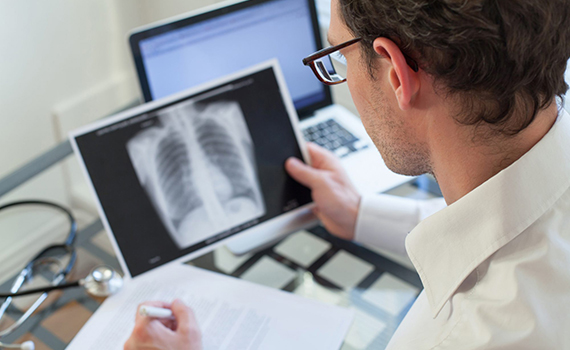
The Oak Ridge National Laboratory's (ORNL) Summit supercomputer, the fastest in the world, is used to develop algorithms that can help researchers automatically design neural networks for cancer research. This will allow doctors to quickly recognize the nature of tumors.
According to estimates by the World Health Organization, by 2025 the number of diagnosed new cases of cancer will reach 21.5 million per year (today - 18 million). Employees at Oak Ridge National Laboratory and New York State University at Stony Brook believe that this means that doctors will have to examine about 200 million tests per year.
Neural networks can help ease their workload so that doctors can focus more on patient care. Several studies have been conducted that describe how to train computer vision models to diagnose cancer cells in images. Nevertheless, according to The Register, their creation and training requires a lot of time and money.
However, a team from ORNL developed software called MENDLL, written in Python, capable of creating new models of neural networks that will check tumor images. According to an article published on arXiv, millions of new models can be generated in a matter of hours before the best one is chosen.
“The end result is a highly accurate neural architecture that can look for seven different types of cancer in a pathology image,” Robet Patton, one of the program’s authors and researcher at ORNL, told The Register.
For the training of the program, 86 thousand manually classified pictures were used. Benign cells were depicted in 64,381 images, and cancer cells in 21,773. In total, the photographs depict seven different types of cancer - breast, colon, lung, pancreas, prostate, skin and bones. The best of the neural network models created by MENDLL showed a result of 0.839 accuracy points, where 1 point is an ideal option, and could process 7033 images per second. For comparison, a manually developed ultraprecise neural network known as Inception is slightly more accurate at 0.899 points, but can only analyze 433 snapshots per second.
Meanwhile, in Russia, scientists at Sechenov University have developed a new program based on artificial intelligence, which will allow you to quickly check blood tests for 14 biomarkers at once and identify cancer. According to Izvestia, today such diagnostics are not used in the country. Now the patient must undergo lengthy comprehensive examinations, and tests for tumor markers are prescribed after the suspicion of cancer has been confirmed. The new technique will help identify those patients who have suspicion and send them for additional tests.
For AI training, 600 patients were uploaded to the database. The program is called OncoPro. After conducting the study, university staff filed four patent applications. To date, patented methods for diagnosing cancer of the lungs and colon.





